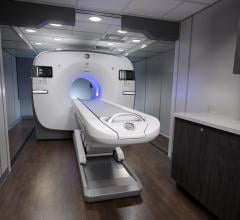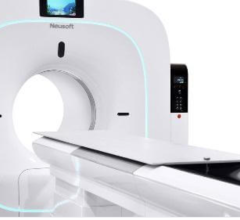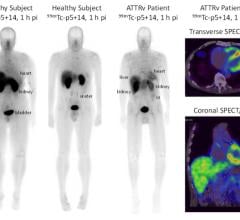April 29, 2014 — GE Healthcare announced the first seven markets where Vizamyl (Flutemetamol F18 injection), a radioactive diagnostic agent approved by the U.S. Food and Drug Administration (FDA) will be available. Late in the second quarter of 2014, Vizamyl will be available to imaging centers near East Rutherford, N.J., Woburn, Mass.; Beltsville, M.D.; East Lansing, Mich.; Dallas, Texas; Phoenix, Ariz.; and Colton, Calif. Vizamyl is indicated for positron emission tomography (PET) imaging of the brain to estimate beta amyloid neuritic plaque density in adult patients with cognitive impairment who are being evaluated for Alzheimer’s disease or other causes of cognitive decline. Vizamyl is an adjunct to other diagnostic evaluations. The safety and effectiveness of Vizamyl have not been established for predicting the development of dementia or other neurologic conditions or for monitoring responses to therapies. Vizamyl is the only PET imaging tracer for detection of amyloid approved by FDA for visual interpretation of color images.
In conjunction with the availability of Vizamyl, GE Healthcare has developed and launched an electronic reader training program. Vizamyl images should be interpreted only by readers who have completed the GE Healthcare electronic reader training program. This program instructs physicians in the appropriate method to interpret Vizamyl images and can be accessed by healthcare professionals online at www.ReadVizamyl.com. In a clinical trial that validated the use of the training program, it was shown to be highly effective in training readers without amyloid imaging experience, as measured by sensitivity, specificity and reader agreement.
“The commercial availability of Vizamyl and rollout of the electronic training program represent our commitment to helping physicians deliver more accurate and timely assessments of patients with cognitive disorders,” said Ben Newton, director of PET Neurology, GE Healthcare Life Sciences. “The ability to detect or exclude the presence of beta amyloid plaques in the brain may help physicians make more accurate assessments of patients with suspected cognitive disorders, including AD.”
For more information: newsroom.gehealthcare.com


 July 30, 2024
July 30, 2024 








